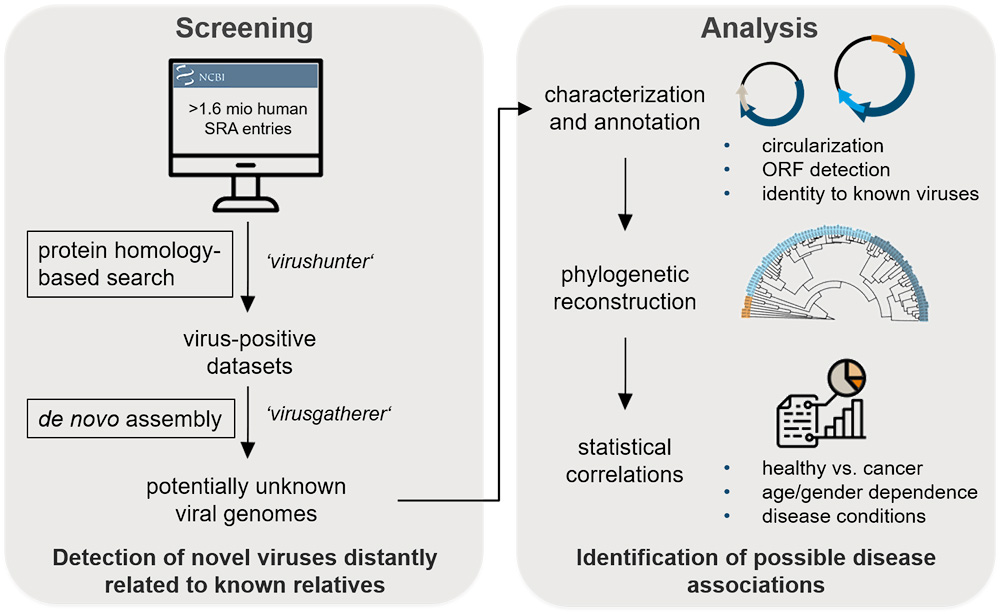High-throughput Virus Discovery in Next Generation Sequencing Data
Franziska Klingler — Hector Fellow Ralf Bartenschlager
Anelloviruses are a diverse group of ubiquitous viruses infecting humans and vertebrates. Their contribution to disease development remains elusive. We hypothesize that during lifelong, persistent infection disbalances in the viral community can drive onset and progression of disease, e.g. cancer. We aim at a thorough description of the viral spectrum present in healthy and diseased tissue by high-throughput screening of sequencing data and subsequent identification of viral variants correlated with pathogenesis.
Anelloviruses are a highly diverse group of non-enveloped viruses with circular single-stranded DNA genomes ranging between 2.8–3.8 kb. These viruses are ubiquitously present in humans and other vertebrates. Often several family members are detected simultaneously within the same tissue where they establish persistent infections. Currently, their role in development of human diseases, such as cancer and autoimmune disorders remains elusive. We hypothesize that, although in many cases not causing harm over years, disbalances in the composition of viral communities can induce disease onset and progression.
We created a powerful computational platform consisting of two modules. The first is termed ‘virushunter’, enabling high-throughput detection of viral sequences in unprocessed Next Generation sequencing (NGS) data. The second one, ‘virusgatherer’ assembles the complete viral genomes. Thus, we are able to identify novel viral species only distantly related to any known viruses in distinct tissues and disease conditions.
Now, we aim at a comprehensive description of the spectrum of human anelloviruses by systematically screening NGS data of diseased and healthy tissues. We will then perform computational and laboratory analyses to determine i) possible disease association of identified viral species and subgroups, ii) the presence of oncogenes and iii) epidemiological data regarding the viral prevalence and the related risk of certain diseases. This will ultimately allow us to thoroughly elucidate the pathogenic potential of human anelloviruses.
Franziska Klingler
Heidelberg UniversitySupervised by

Ralf Bartenschlager
Medicine & Biology

